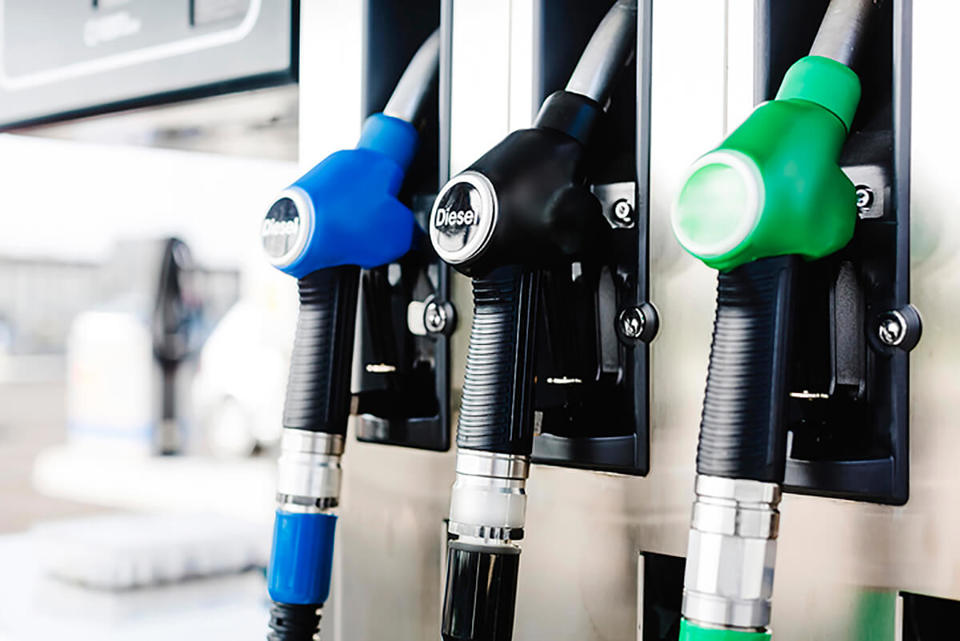The Government says it will grant new powers to help protect drivers from unfair fuel prices and improve competition.
Under new amendments tabled today (November 15) to the Digital Markets, Competition & Consumers Bill, the Competition and Markets Authority (CMA) will become the body responsible for closely monitoring road fuel prices and reporting any sign of malpractice to the Government.
Fuel retailers, including supermarkets, will be forced to reveal how much they are charging customers on their forecourts versus their profits.
Those that fail to comply could face a fixed fine from the watchdog of up to 1% of their worldwide turnover, or an ongoing fine of up to 5% of daily turnover.
Energy security secretary, Claire Coutinho, says she will not hesitate to hold retailers to account, if there is any evidence of unfairly hiking up prices and holding back savings from UK motorists.
The warning follows a report from the CMA earlier this year that revealed some supermarkets had failed to pass on savings in oil prices - charging drivers 6p more per litre for fuel, which amounted to £900 million in extra costs in 2022 alone.
Earlier this month, the CMA found that major fuel retailers were still cashing in on increased margins.
Supermarket fuel margins in 2023 year-to-date have been higher than previous years on a percentage basis, the new CMA report found.
However, the CMA figures show that supermarket fuel margins were slightly down on 2022, on a pence per litre (ppl) basis, due to lower wholesale costs.
Publishing road fuel monitoring update reports approximately every four months, this latest study from the CMA says that the 2023 figure was driven by particularly high fuel margins early in the year.
From May, the average monthly fuel margin has fallen month-on-month, from 11.9ppl in May to 7.3ppl in August.
However, the CMA says that even the August figure is higher than the annual average for years prior to 2021, and the data on increasing retail spreads in September and October suggests that supermarket fuel margins may have increased since August.
Supermarkets have retained a level of price discount to other types of retailers consistent with long-term trends between end-May and end-September.
The CMA has also seen fewer cases of non-supermarket retailers being cheaper than the supermarket average compared to late 2022 and early 2023 (though this is more common than prior to 2022).
'Shocking behaviour from some fuel retailers'
Coutinho said: “At a time when many were struggling with increased living costs, we saw shocking behaviour from some fuel retailers who failed to pass on savings at the pump.
“Now we are cracking down on any petrol station bosses found to be unfairly hiking up their prices.
“That’s why we’re giving the CMA new powers to bring fairness back to the forecourts and make sure UK drivers get a competitive fuel price.”
Although many retailers have voluntarily increased transparency of their costs and returns, the CMA also revealed that Shell and Moto-way had failed to meet their information requests, despite calls from the energy security secretary to do so.
On top of this, 12 of the biggest retailers, including all four fuel-selling supermarkets, have already signed up to the CMA’s voluntary scheme to share daily price data – allowing news outlets and websites to create price comparison tools for customers to easily compare costs.
The Government says it is progressing plans to make this legal requirement for fuel retailers to share daily price information that will help customers to easily shop around for deals.
A consultation on the design of Government’s open data scheme is due to launch this autumn.
Minister for energy consumer and affordability, Amanda Solloway, said: “I’m pleased to see many retailers cooperate with the CMA so far, to share their price information and bring competition back to our petrol stations.
“I now urge comparison sites and others to get onboard to help UK motorists find the best local price for their fuel.”
The CMA will receive its new information gathering powers through amendments tabled today to the Digital Markets, Competition and Consumer Bill - which is expected to come into force later next year.
The watchdog will use the information gathered from retailers to provide regular public updates on the state of competition in the UK fuel market, as well as report any evidence of unjustified price increases so the government can hold retailers to account.
Sarah Cardell, chief executive of the CMA, said: “We welcome this new responsibility and will use it to hold fuel retailers to account.
“The CMA is determined to revitalise competition in this sector so drivers can be confident they are getting the best price possible when they fill up their vehicles.”
More information on the 12 fuel retailers to who have signed up to share their daily pricing information, as part of the CMA’s voluntary data scheme.






















Login to comment
Comments
No comments have been made yet.